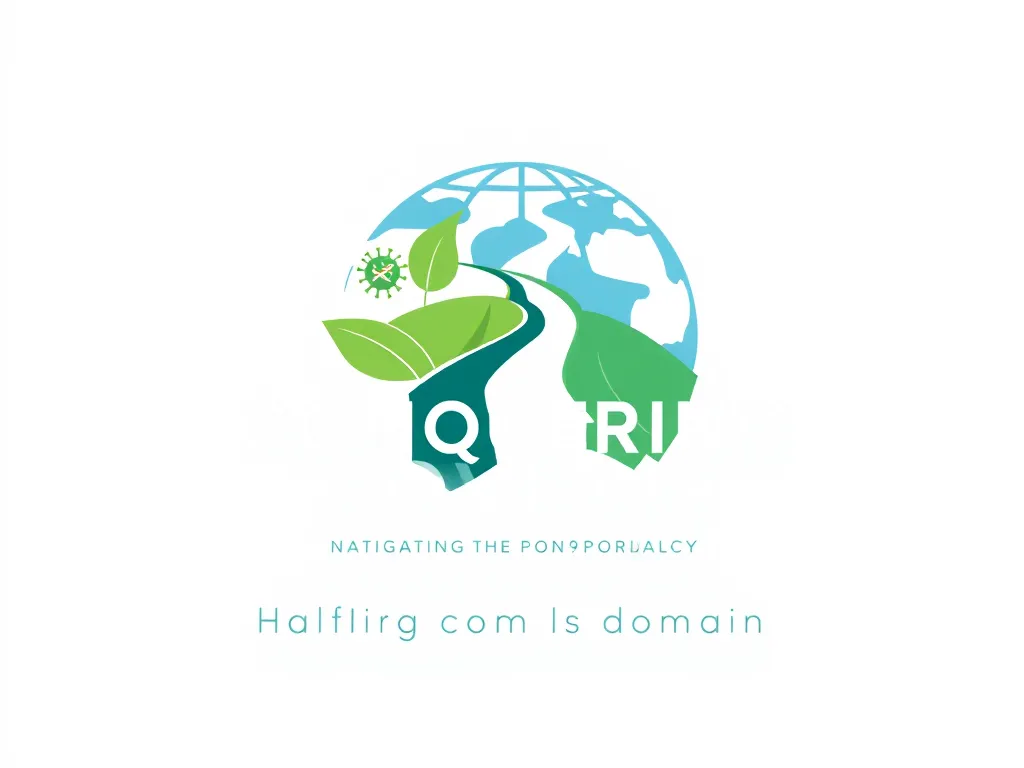Rapid Advances in The Race for COVID-19 Vaccine Development

The Race for COVID-19 Vaccine Development
The Race for COVID-19 Vaccine Development was an unprecedented global effort triggered by the COVID-19 pandemic, which began in late 2019. With millions infected and countless deaths, the urgency to develop effective vaccines to curb the spread of the virus became a top priority for scientists and governments worldwide. This race not only highlighted the fierce competition among pharmaceutical companies but also showcased the collaborative spirit unique to this crisis, paving the way for some of the fastest vaccine developments in history.
At the onset of The Race for COVID-19 Vaccine Development, various vaccine candidates emerged from different platforms, including mRNA, viral vector, and inactivated virus technologies. From January 2020 onwards, more than 300 vaccine candidates were reported in various stages of development across the globe. Notable companies such as Pfizer/BioNTech, Moderna, AstraZeneca, and Johnson & Johnson were at the forefront, fast-tracking their research and clinical trials to deliver vaccines that could safely immunize populations against COVID-19.
The Race for COVID-19 Vaccine Development saw a convergence of science and technology, enabling the rapid design and production of vaccines. Innovations such as messenger RNA (mRNA) technology revolutionized vaccine development, allowing for quicker manufacturing and adaptability to emerging variants of the virus. This technological leap, combined with substantial funding and government support, significantly sped up the vaccine development timeline, allowing vaccines to be authorized for emergency use within a year of the virus's identification.
Despite the swift progress in The Race for COVID-19 Vaccine Development, the journey was fraught with challenges. Regulatory bodies and health authorities faced the daunting task of ensuring vaccine safety and efficacy while adhering to rigorous scientific standards. Simultaneously, the need for transparency and public trust in the vaccine process became critical, as public skepticism and misinformation threatened to undermine vaccination efforts. The success of vaccination campaigns depended not only on the availability of safe and effective vaccines but also on people's willingness to receive them.
The rapid progress in Vaccine Development has transformed global public health strategies against infectious diseases.
Ultimately, The Race for COVID-19 Vaccine Development symbolized an extraordinary milestone in global health, demonstrating humanity's resilience and capacity to collaborate in the face of a global crisis. As we continue to navigate the implications of COVID-19 and the ongoing emergence of new variants, the lessons learned from this race will play a crucial role in shaping future responses to pandemics and informing public health strategies around the world.
Innovative Vaccine Technologies
One of the significant advancements during The Race for COVID-19 Vaccine Development was the emergence of innovative vaccine technologies, particularly mRNA vaccines. The Pfizer-BioNTech and Moderna vaccines utilized messenger RNA technology, which instructs cells to produce a harmless spike protein found on the virus's surface. This prompts an immune response, equipping the body to recognize and combat the actual virus. The rapid design, efficiency of production, and adaptability to variants have made mRNA vaccines a groundbreaking advancement in immunization strategies.
Another exciting technology developed was viral vector vaccines, such as the AstraZeneca and Johnson & Johnson vaccines. These vaccines use a modified version of a harmless virus (not the coronavirus itself) to deliver genetic material from the SARS-CoV-2 virus into human cells. This approach effectively triggers an immune response that helps protect against COVID-19. The usage of viral vectors allows for a robust immune response and offers an alternative to traditional vaccine approaches, further expanding the toolbox available for combating pandemics.
Protein subunit vaccines, like Novavax, also entered the race, focusing on parts of the virus rather than the whole pathogen. These vaccines contain harmless pieces of the coronavirus — specifically, the spike protein — which stimulate the immune system without the risk of causing disease. They are considered safer since they do not use live viruses at any stage of their production, making them an attractive option, especially for populations with concerns regarding more novel vaccine technologies.
Global Collaboration in Vaccine Development
The global collaborative efforts in The Race for COVID-19 Vaccine Development are noteworthy. Governments, pharmaceutical companies, and organizations engaged in public-private partnerships to accelerate vaccine research, development, and distribution. Initiatives such as the Coalition for Epidemic Preparedness Innovations (CEPI) and GAVI facilitated seamless collaborations, pooling resources and expertise to enhance vaccine delivery timelines. These partnerships were vital for sharing vital information and research findings and fostering cooperation across national boundaries, ultimately leading to a quicker response to the pandemic.
Moreover, the World Health Organization (WHO) played a crucial role in coordinating global public health responses to the pandemic, including vaccine distribution. WHO's COVAX initiative aimed to ensure equitable access to COVID-19 vaccines, particularly for low- and middle-income countries. By facilitating negotiations between manufacturers and nations, COVAX sought to address disparities in vaccine availability, preventing vaccine nationalism and ensuring that all countries benefit from scientific advancements.
Additionally, international clinical trial networks facilitated collaboration between researchers across the globe, enabling quick recruitment and diverse population representation for vaccine trials. These networks were essential in providing crucial data on vaccine safety and efficacy while expediting the traditional clinical trial process. The collaboration of multiple nations in conducting trials became a cornerstone in the rapid development and approval of vaccines.
Regulatory Challenges and Approvals
In The Race for COVID-19 Vaccine Development, regulatory bodies faced unprecedented challenges in approving vaccines for emergency use. Emergency Use Authorization (EUA) processes were implemented to expedite vaccine availability while maintaining rigorous safety and efficacy standards. Regulatory agencies, such as the U.S. Food and Drug Administration (FDA) and the European Medicines Agency (EMA), conducted expedited reviews of clinical trial data, allowing vaccines to become accessible to the public in record time while ensuring regulatory compliance.
The comparability of different regulatory frameworks across nations posed additional challenges in The Race for COVID-19 Vaccine Development. Variations in approval processes informed the need for harmonized standards for more efficient global vaccine distribution. Collaborative efforts led by WHO and other international organizations sought to address these differences, streamlining the approval processes of vaccines so they could reach populations worldwide more quickly and with less friction.
Finally, post-marketing surveillance became a critical component of vaccine safety monitoring. Regulatory agencies developed comprehensive systems for tracking vaccine performance and potential side effects among vaccinated individuals post-authorization. This proactive approach ensured the identification of rare adverse events and maintained public trust in the vaccination process as regulatory bodies remained vigilant in overseeing the ongoing safety and efficacy of vaccines once they were widely distributed.
Ethics in Vaccine Distribution
The Race for COVID-19 Vaccine Development spotlighted the ethical challenges surrounding vaccine distribution, particularly the issue of equity in global vaccine access. High-income countries secured the majority of vaccine doses early during the pandemic, raising concerns about fairness and exacerbating health inequalities on a global scale. The importance of equitable distribution became a significant point of discussion, as vulnerable populations in low- and middle-income countries faced barriers to accessing life-saving vaccines.
Vaccine hesitancy also emerged as a critical ethical concern. Misinformation, distrust in health systems, and fears surrounding vaccine safety contributed to public skepticism toward COVID-19 vaccines. Addressing vaccine hesitancy required clear, transparent communication and the engagement of community leaders to build trust and encourage vaccine uptake across diverse populations. Ensuring informed dialogue and education became paramount for strengthening public trust in vaccines and overcoming obstacles to achieving herd immunity.
Moreover, informed consent in clinical trials gained increased attention as ethical issues surfaced regarding participant rights. Researchers and institutions had to ensure transparent explanations of trial processes, potential risks, and benefits to enable individuals to make informed decisions about their participation. Upholding ethical standards throughout clinical trials was essential to maintain integrity in research practices and foster public confidence in the vaccines being developed.
Post-Vaccine Monitoring and Efficacy Studies
As vaccines became widely administered, post-vaccine monitoring and efficacy studies became essential for tracking long-term vaccine effectiveness. Public health authorities initiated long-term studies to assess how well different vaccines performed over time, including how long immunity lasted and the necessity of booster doses against emerging variants. These findings would inform vaccination strategies and public health policies going forward.
Adverse event reporting systems provided vital data for vaccine safety monitoring. Health agencies encouraged reporting of any side effects experienced post-vaccination to ensure prompt identification and response to potential safety concerns. These adverse event systems highlighted the importance of transparent communication between health officials and the public, helping to maintain trust in the ongoing vaccination process and reinforce the commitment to safety.
Lastly, the ongoing impact of viral variants on vaccine efficacy necessitated continuous research and adaptation within vaccination strategies. Health agencies monitored the effectiveness of existing vaccines against new variants and adapted vaccination efforts quickly in response to emerging data. This adaptability was crucial to maintaining immunization efforts and ensuring public health in the face of rapidly evolving viral threats. Overall, The Race for COVID-19 Vaccine Development demonstrated the need for flexibility and vigilance in the forever-changing landscape of global health.
